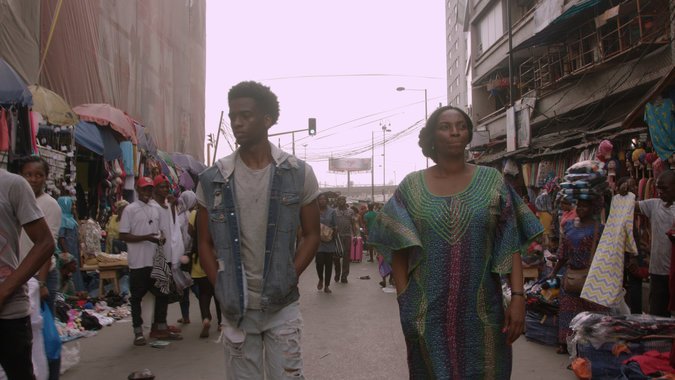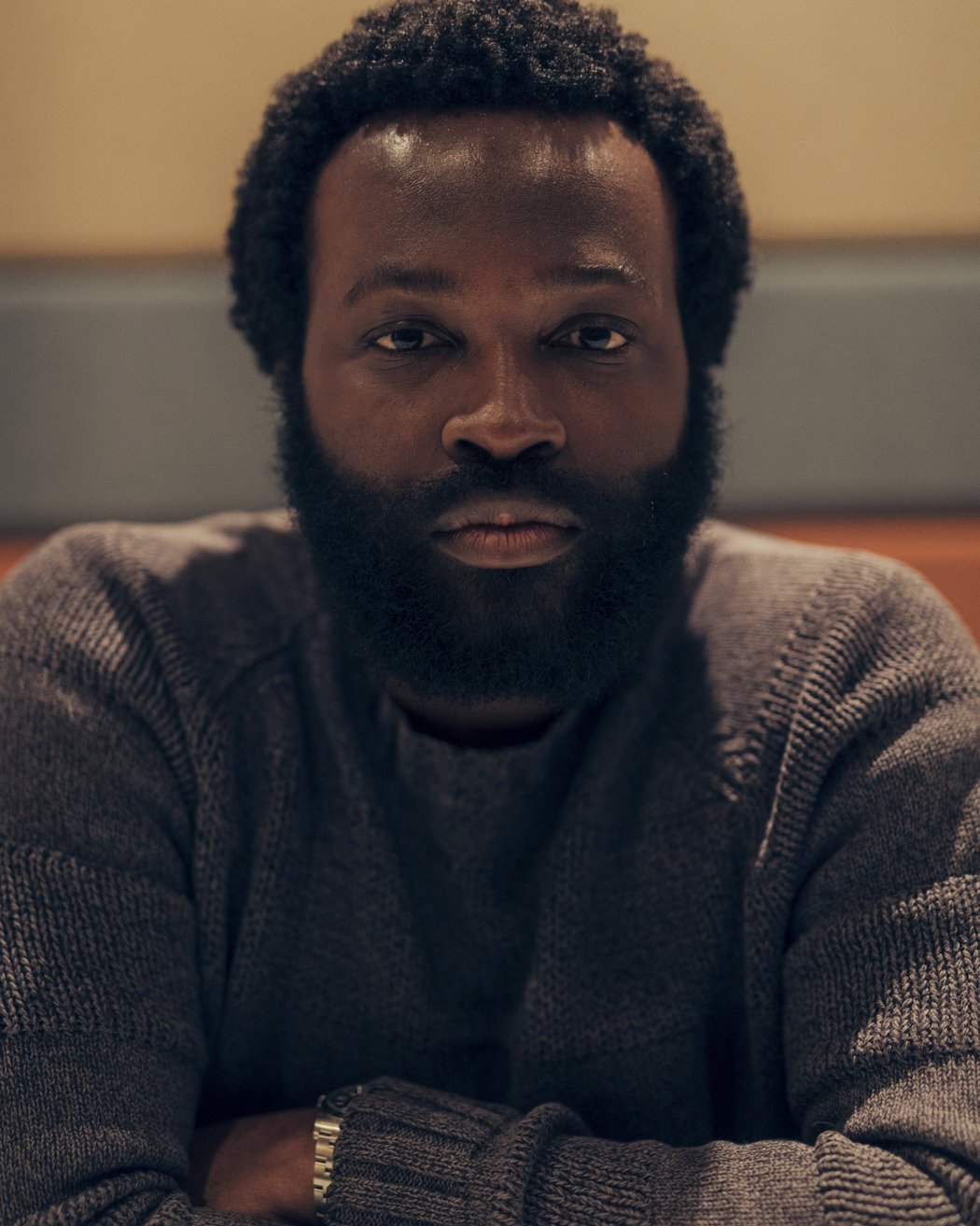The film, “Nigerian Prince,” follows a Nigerian-American high schooler, Eze (Antonio J. Bell), whose mother sends him to live with his aunt (played by the Nigerian actress Tina Mba) in Lagos. There, Eze befriends his cousin, Pius (Chinaza Uche), a professional scammer who sends phishing emails, among other deceitful business pursuits.
Mr. Okoro wrote the story with Andrew Long, a fellow Howard University alumnus. As they developed the script, they were guided by the director Spike Lee, who mentored Mr. Okoro at N.Y.U. (Mr. Lee is also an executive producer of the film.)
The project was long-gestating. “This is classic Faraday,” Sheldon Chau, the film’s cinematographer, said in a phone interview. “He comes up to me and he asks me, ‘Sheldon, what are you doing summer 2017?’ This is in 2014. And I was like, ‘I think I’m free.’ And he was like, ‘Well, that’s when I want to do my feature.’”

The plot is based in part on Mr. Okoro’s own life. A Nigerian-American raised in Maryland, Mr. Okoro was sent to live with his extended family in Lagos for his first two years of high school, in the early 2000s.
Like his character, Eze, he reluctantly left his friends and home. “I definitely resented it,” he said.
He eventually learned to appreciate the new culture; one of his hopes is that the film will resonate with other young Nigerian-Americans who have felt disconnected from their roots.
But shooting a movie in the West African city brought a host of unforeseen challenges.
“We shot during the end of the rainy season,” said Mr. Okoro, who was familiar with the region’s climate but hadn’t bargained for all the difficulty it would present in filming. “There were some days where we’d go to set at 6 a.m., and it’d rain at 6:30 and flood.”
Advertisement
Continue reading the main story
The week before filming began, the crew arrived to a space meant to double as a police station onscreen, but it, too, was flooded. They didn’t end up using that location, though not because of the flooding; as at several other sites, the owner decided at the last minute that despite a signed contract, filming would no longer be allowed there. With little leverage and less time, Mr. Okoro and his team went searching for an alternative.
Newsletter Sign Up
Continue reading the main story
Thank you for subscribing.
An error has occurred. Please try again later.
You are already subscribed to this email.
In addition to the frequent rains and notoriously unreliable power, they ran up against in the city’s heavy traffic, which the director described as “like L.A. times five or 10.”
Mr. Okoro and his team did have assistance. Several of his collaborators were peers from N.Y.U. To help them navigate, they hired artists from the prosperous Nigerian film industry, known as Nollywood. Most of the crew members were Nigerian, and the American heads of creative departments were paired with Nigerian artists.
“It just became apparent that all the departments needed a partner to show us the proper way to do things,” Ari Fulton, the costume designer who met Mr. Okoro at N.Y.U., said in a phone interview.

For Ms. Fulton, the assistance came from Olaogun Opeyemi, a Nigerian costume designer and the film’s costume supervisor, who helped make nuanced choices. One example is a red hat worn by Pius, the cousin, that’s an adaptation of an Igbo cap. Ms. Opeyemi helped fill out the history of the cap, which younger Nigerians have adapted for more casual use.
Another learning experience was realizing that despite the size of the budget, financial decisions still had to be carefully considered.
“The million dollars just flies,” said Mr. Chau, the cinematographer. He described the days after winning the grant, when he and Mr. Okoro would fantasize about using elaborate film gear. But they quickly realized that they were being unrealistic; after all, their budget, while several times higher than the $150,000 or $200,000 they’d initially hoped to shoot the movie for, was still modest for a feature film.
“We went back to pretty much our initial approach,” Mr. Chau said. “It was a humbling experience.”
Still, Mr. Chau also noted that while Mr. Okoro was the ostensible winner, the money had a trickle-down effect, bolstering the professional portfolios of his young collaborators.
Advertisement
Continue reading the main story
“The profiles of all of us came up,” Mr. Chau said.
The pressure trickled down, too.
“If someone hands you a million dollars, they expect you to turn out an amazing product,” Ms. Fulton observed. “It’s a huge thing to carry on your shoulders.”
Mr. Okoro has carried it for a year.
The morning after the film was finished — the sound mixed, the color corrected — less than two weeks before the film’s April 24 premiere, the director was standing in a Tribeca restaurant where this year’s award finalists were scheduled to pitch their films.
After exchanging greetings with two of the new judges, the actor Griffin Dunne and the comedian Ilana Glazer, Mr. Okoro took a seat, waiting for the new finalists to appear.
On the floor at his feet sat a hard plastic carrying case he’d brought with him. Inside it was a computer drive with the copy of “Nigerian Prince” that will be used for the Tribeca screenings. The film was finally ready, and Mr. Okoro would not let it out of his sight.
Continue reading the main story
Article source: https://www.nytimes.com/2018/04/19/movies/tribeca-film-festival-winner-faraday-okoro.html?partner=rss&emc=rss
Speak Your Mind
You must be logged in to post a comment.